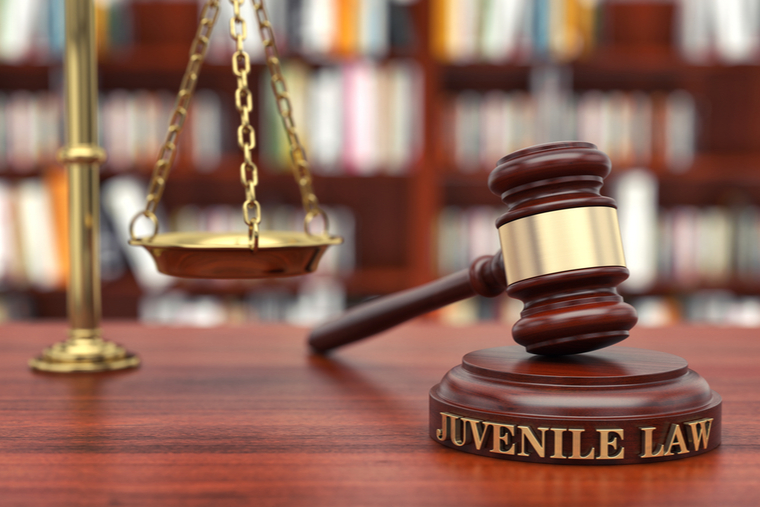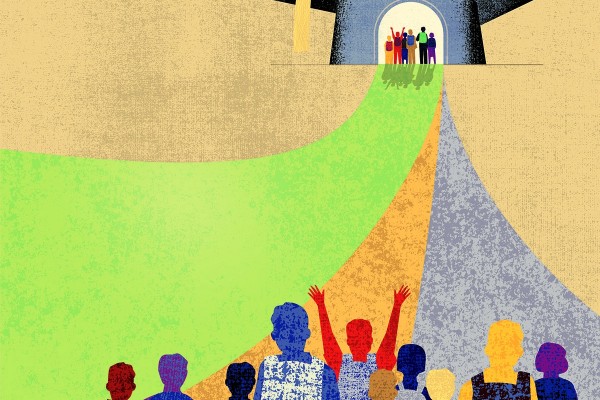Does being sentenced to juvenile detention or community service truly serve as a means to rehabilitation?
One mechanism to rehabilitate a young person deemed by the justice system to be on the path to a life of crime is to change behaviors associated with crime.
A research team at Washington University in St. Louis tested whether the system affected those it was charged with rehabilitating by following adolescents prior to and after sentencing. What they found, according to Joshua Jackson, the Saul and Louise Rosenzweig Associate Professor of Personality Science in the Department of Psychological & Brain Sciences in Arts & Sciences, was “a surprising lack of anything positive.”

The results were published in the Journal of Personality and Social Psychology.
Research has established that certain personality traits — such as impulsivity and sensation-seeking — are correlated with a person’s likelihood of committing a crime, Jackson said. “Personality is relatively consistent across decades,” he said. “But certain things can change it.” Research shows, for example, that military service can have an effect on a person’s personality.
If the true aim of the juvenile justice system is rehabilitation, Jackson said, “One way it might achieve that is by influencing the personality traits that may have contributed to people landing in the system in the first place.”
The research team included former PhD student Kathryn Bollich-Ziegler, former graduate student Emorie Beck and Patrick Hill, associate professor of psychological and brain sciences.
They looked to the National Longitudinal Study of Youth (NLSY) run by the U.S. Bureau of Labor Statistics (BLS) for data. The NLSY is an ongoing survey that regularly collects demographic and socioeconomic information. It began in 1979 with more than 12,500 participants. Now, those participants’ children also take part; in 2018, 10,000 of those kids had answered at least one survey.
From a subsample of about 7,700 children, the research team compared two groups, one of which had been adjudicated to the juvenile justice system.
It also asked participants to rate on a four-point scale whether they agreed with statements such as “Life with no danger in it would be too dull for me” or “I have used a lot of self control to keep out of trouble.”
They were able to compare those who had been adjudicated to the juvenile justice system with a control group of people who were similar in a broad range of background aspects (e.g., socioeconomic status), but had not been sentenced.
If we conceptualize rehabilitation as trying to change certain aspects of a person, those that are associated with crime, we are coming up short.
Joshua Jackson
Comparing the two groups, Jackson said there weren’t striking differences, but those that did surface were not positive. In general, the control group declined in impulsivity — likely a result of the normal maturation process. Those who were incarcerated did not show similar declines. “They were worse off,” Jackson said. After their sentences were over, they were, on average, more impulsive than others their age who had not been a part of the juvenile justice system.
The second approach considered people’s personalities before and after they were involved in the system. “If they were basically the same before and after, then incarceration had no effect,” Jackson said. “But if they were different, then involvement in the system likely did something.”
It did something.
“The strongest effect we saw was for impulsivity,” Jackson said. Right after being released, the subjects’ impulsivity scores peaked.
“There was a short-term push in the opposite direction of what rehabilitation efforts would want.”
Overall, Jackson said the effects the justice system had were not substantial. The differences that emerged from the data, however, did not signal positive effects of rehabilitation for either incarceration or community service.
Jackson noted that researchers looked deeply into data to see if any factors might be driving the results. They looked at gender, race and socioeconomic status to see if people were differentially impacted. “It doesn’t look like any one group is driving these results,” he said. “People were generally the same in terms of the impact of incarceration. No segment of the population is benefitting.”
In general, Jackson said, “Personality change, and thus rehabilitation, is very hard to do.” Going forward, however, he continues to investigate it in a broader context, to better understand the conditions needed to optimally change personality. Any new findings might also apply in the context of rehabilitation, paving the way for some new ideas.
Currently, he said, “If we conceptualize rehabilitation as trying to change certain aspects of a person, those that are associated with crime, we are coming up short.”



